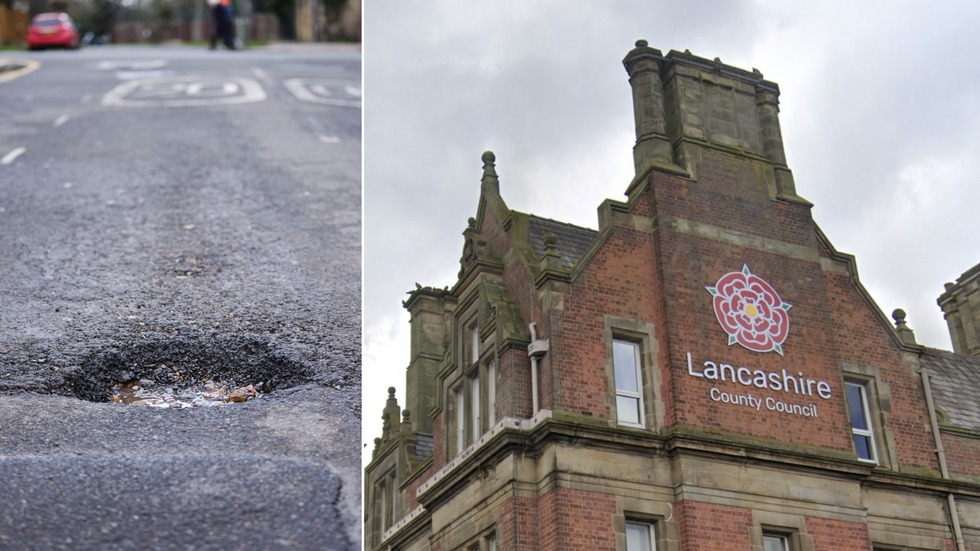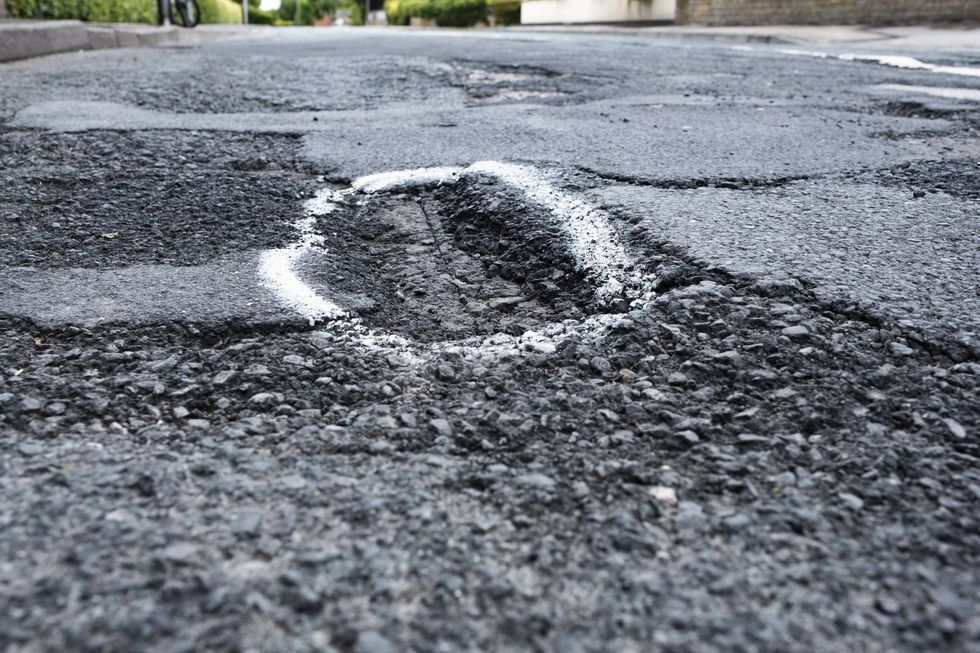Student who dislocated ankle and couldn't work for four weeks told by council that potholes are a 'fact of life'

Rebecca Salisbury blasted her council letter as "rude", "not necessary" and "disgusting"
Don't Miss
Most Read
A student who was hospitalised after dislocating her ankle on a damaged piece of road and was told by council bigwigs that potholes are a "fact of life" has slammed authorities as "absolutely disgusting".
Rebecca Salisbury, 23, had fallen on some broken tarmac next to a car park in Preston, Lancashire - which she said had left her with some of the worst pain in her life.
After the 23-year-old was taken to hospital, medics had to put her to sleep in order to "pull" the dislocated bone back into place before fitting a cast over her ankle.
The accident left Salisbury unable to work for a month and needing daily help from her mother, and even forced her to cancel a trip to Dublin with friends.

Lancashire County Council's response to Salisbury's compensation request left her "shocked", she said
|Getty/Google
The student later filed a compensation claim to Lancashire County Council to cover costs for hospital parking, numerous taxi trips to doctor's appointments, and other expenses.
The 23-year-old said she had to use taxi services because she couldn't drive, her mother didn't drive, and her father worked full-time.
But the local authority's response - in which it dismissed her claim, citing an old legal case which said potholes should be expected "in a perfect world" - left Salisbury "shocked".
She said: "I was horrified. I came home, and my mum said: 'I think your council letter has come.' I opened it and I was just shocked.
MORE LIKE THIS:
- Top Gear star slams Britain’s pothole-ridden roads as he issues urgent plea: ‘We can’t carry on like this’
- Mystery sign writer mocks council for devastating potholes and vows not to stop until he gets an apology
- Drivers warned of pothole-related car breakdowns surging from the 'miserable state of our roads'

The council response quoted a pair of legal cases which defined different types of damage to roads
|Getty
"I was like: 'That is absolutely disgusting'. They didn’t have to say it. They could have just said: 'Your claim has been rejected.' I thought it was very rude and not necessary."
Salisbury said she was only trying to recoup some of her necessary costs - up to £100 in compensation - rather than looking for a mega payout.
The council response quoted a pair of legal cases from 1992 and 1993 which established a set of definitions about different types of damage to roads.
It said: "The courts are clear to distinguish between depressions and holes in streets, which in a less than perfect world the public must simply regard as a fact of life, and defects which clearly pose a danger to pedestrians using that part of the highway."
A council spokesman said: "Keeping our roads safe is one of our highest priorities.
"We have a robust inspection regime in place to identify and repair any safety issues on our roads before they become a risk, which allows us to defend against many legal claims by showing that we take reasonable steps to ensure our roads are safe.
"In this case, an inspection carried out just over a month earlier on December 11 had not identified any defects at this location, and a further inspection carried out on February 5 after receiving the claim found no relevant defects.
"The statutory defence provided by the Highways Act 1980 recognises that councils cannot be expected to ensure all roads are free defects at all times, and can defend against claims if they have taken reasonable steps to inspect roads, and make any repairs which may be needed."











